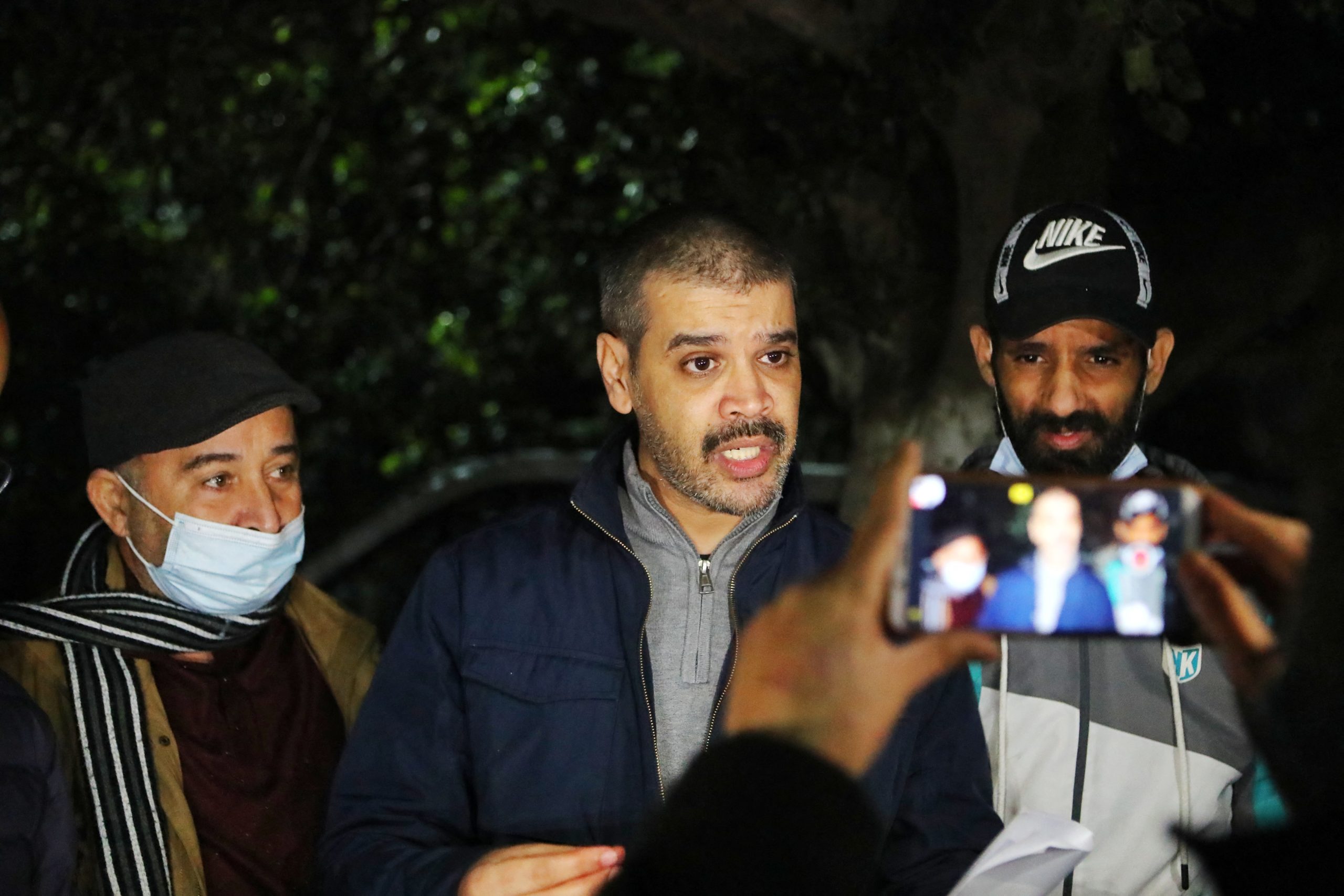© Photo by Bouhara Hamza/ABACA via Reuters Connect
The Clooney Foundation for Justice’s TrialWatch initiative is monitoring the trial of Said Boudour in Algeria.
Mr. Boudour is a freelance journalist and human rights defender. On March 10, an Algerian court confirmed charges of defamation, ‘insulting official bodies,’ and attempted blackmail (‘threat to defame’) against Mr. Boudour. His trial is set to begin on July 7. Pursuing criminal penalties for Mr. Boudour’s allegedly defamatory and insulting speech is, however, inconsistent with the International Covenant on Civil and Political Rights and the African Charter on Human and Peoples’ Rights.
Mr. Boudour’s prosecution comes against the backdrop of an increasing crackdown on freedom of expression in Algeria, including the blocking of news sites that have covered anti-government protests linked to controversial elections in December, 2019. Further, the UN Human Rights Committee has previously expressed concern at Algeria’s criminalization of insults of State bodies and use of this offense to prosecute journalists.
The charges of defamation and ‘insulting official bodies’ are based on posts on Mr. Boudour’s Facebook page, the vast majority of which were posted after he alleges his account was hacked. But regardless of whether he posted them or not, Algeria’s effort to criminalize posts that mention state officials runs afoul of the UN Human Rights Committee’s conclusion that states “should not prohibit criticism of institutions.” Further, the Committee has stated that defamation should not lead to a penalty of imprisonment.
In advance of the start of Mr. Boudour’s trial on July 7, CFJ calls on Algeria to ensure respect for Mr. Boudour’s right to freedom of expression and his right to a fair trial.
Background
Mr. Boudour has reported on government corruption and the treatment of migrants in Algeria and has previously been detained by the authorities in connection with this work.
The Algerian authorities brought charges of defamation and attempted blackmail against Mr. Boudour following complaints by two individuals: (1) an employee of a state-run news agency who was named in posts that Mr. Boudour denied making, and (2) an individual who alleges that Mr. Boudour sought to blackmail him. The prosecution also added the charge of insulting public servants.
According to the first complainant, Mr. Boudour’s posts included statements that he and a colleague were “[t]he muzzle of journalism.” Other posts at issue in the case (again denied by Mr. Boudour) criticized army officials and the Minister of Justice. By contrast, the two posts that Mr. Boudour confirms—a repost of a video showing a demonstration and a quote from a newspaper article—do not appear to be the focus of the case, although the authorities had initially also pursued charges of ‘harming national unity.’
The court has confirmed charges under Articles 144, 146, 296, and 298 of the Algerian Criminal Code. Article 144 criminalizes insulting civil servants, while Article 146 criminalizes insulting the army and other public institutions. Both articles require proof of intent to harm “honor [or] feelings” or “respect for . . . authority.” Articles 296 and 298 criminalize defamation.
The African Court on Human and Peoples’ Rights has made clear that “[a]part from serious and very exceptional circumstances for example, incitement to international crimes, public incitement to hatred, discrimination or violence or threats against a person or a group of people, because of specific criteria such as race, colour, religion or nationality … violations of laws on freedom of speech and the press cannot be sanctioned by custodial sentences.” Similarly, the UN Human Rights Committee has expressly stated that “imprisonment is never an appropriate penalty” for defamation. Here, Mr. Boudour is subject to a sentence of up to two years’ imprisonment under Articles 144 and 146 and up to six months’ imprisonment under Articles 296 and 299. This is inconsistent with international standards enshrined in treaties to which Algeria is party, including the International Covenant on Civil and Political Rights and the African Charter on Human and Peoples’ Rights.
According to the second complainant, Mr. Boudour and one of his colleagues—who is also his co-defendant in the case—had threatened to publicize documents showing alleged corruption if he did not pay them 1,700,000 dinars. Mr. Boudour not only denied the allegation, but told the investigating court that because his prior investigative reporting had led to that individual’s arrest, it was “impossible that [he] would have concluded any agreement with [him].” Mr. Boudour’s co-defendant also denied the allegation. On the basis of these allegations, Mr. Boudour was charged with violating Article 371, which criminalizes attempted blackmail (‘threat of defamation’) and carries a maximum sentence of up to five years imprisonment. CFJ takes no position on the charges of ‘attempted threat to defame’ at this time other than to stress the importance that Mr. Boudour’s fair trial rights are respected in relation to all charges that are pursued.
View in Arabic (العربية).
